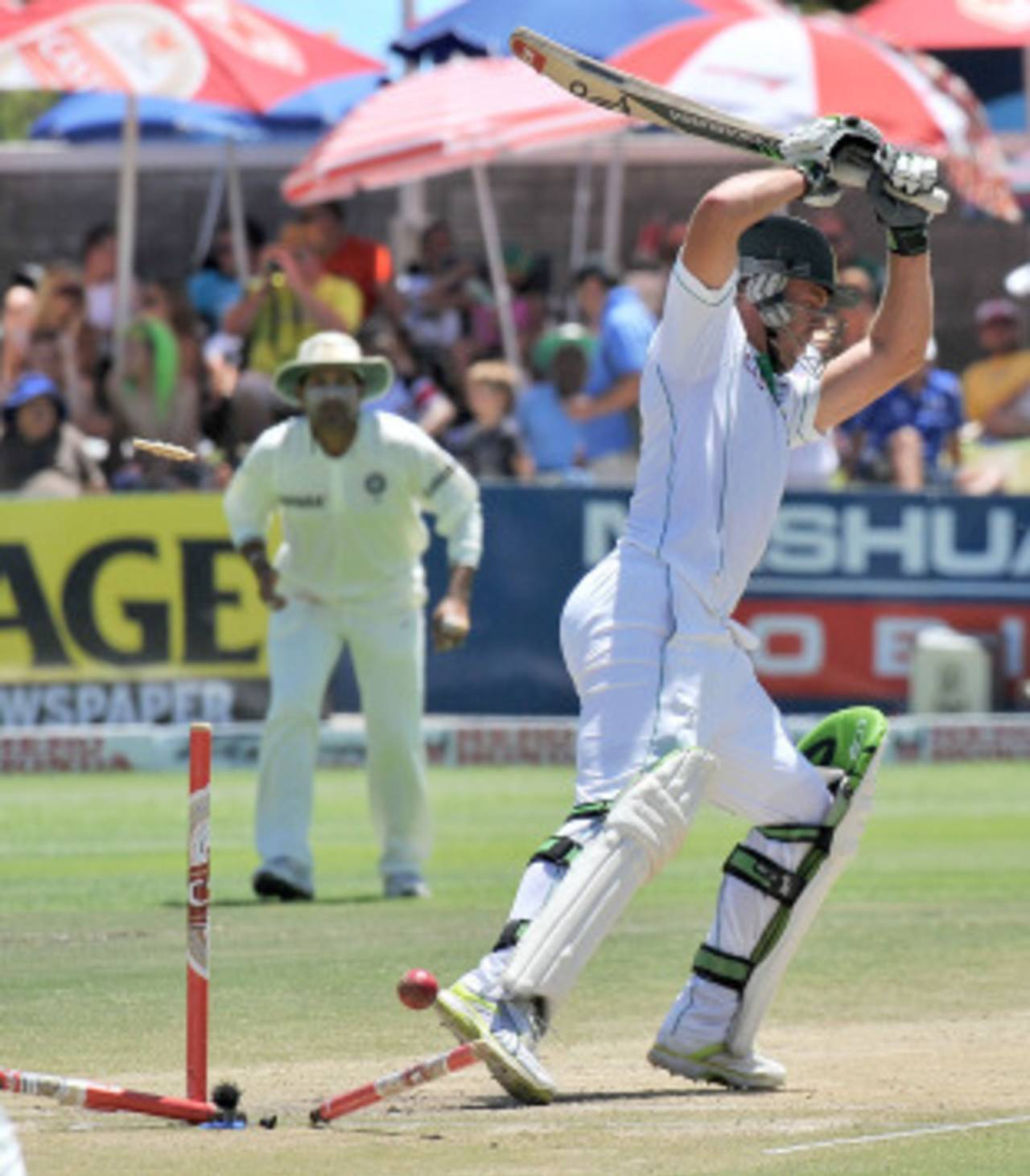FTP is legally binding document, says ex-ICC official
A former ICC official has suggested that the BCCI's flouting of the FTP could have legal implications
Amol Karhadkar
10-Oct-2013

David Becker has said unilateral changes to the FTP would 'undermine the entire commercial structure of international bilateral cricket' • AFP
Even as CSA president Chris Nenzani is set to meet with Indian officials on Friday in the hope of finalising an itinerary for India's tour to South Africa, a former ICC official has suggested that the BCCI's flouting of the FTP could have legal implications. David Becker, who was the ICC's Head of Legal for five years until 2012, and who is one of several lawyers offering CSA advice, said it was "improper" to allow a member body to "blatantly disregard an ICC resolution".
The BCCI, though, says there is no legal impropriety and no threat of any legal action against it.
Under the current FTP, the tour includes a schedule of three Tests, seven ODIs and two Twenty20s. This was the schedule announced by CSA on July 8; the following day, the BCCI objected to the tour, saying the dates had been released without its consultation. It has since announced dates for series against West Indies and New Zealand that, as things stand, would severely shorten the original South Africa schedule.
In a statement released to journalists last week, Becker revealed he resigned from his post because of what he considered "questionable governance" at the ICC and listed three examples, all relating to the "dominance of BCCI President N Srinivasan". What he called the "most concerning one" related to the FTP.
"Perhaps the most concerning example is the recent attempt by Srinivasan to manipulate the FTP schedule to his own benefit," Becker said. "There is a formal, unequivocal and unanimous ICC board resolution approving the current FTP schedule [including 3 Test matches, 7 ODIs and 2 T20 internationals between India and South Africa].
"When the ICC allows one of its directors to blatantly disregard an ICC board resolution, it becomes more than questionable governance - it becomes improper."
Becker explained to ESPNcricinfo why he thought it was legally binding. "The original FTP agreement was approved as a binding regulation of the ICC in 2004. The roll-over of the FTP agreement was approved unanimously by the ICC board in June 2011, as was the FTP schedule for 2012-2020.
"Mr [Shashank] Manohar, the BCCI president at the time, was present in that meeting and voted in favour of it. It is legally binding on the ICC and its members, and hence it can and should be enforced for the sake of international cricket."
Becker said the FTP not being upheld places the entire structure of international cricket at financial risk. "After the June 2011 board meeting each member then went away and signed deals with its commercial partners on that basis. If one member is allowed to alter the agreed FTP schedule unilaterally, it undermines the entire commercial structure of international bilateral cricket."
His statement further read. "It's not only hugely concerning for the game, it's contrary to the regulatory framework within which ICC operates, and hence its illegal."
The BCCI said they have not had communication indicating lawyers would become involved. "We haven't heard anything about any legal action by Cricket South Africa so far. In fact, we are very positive about the tour and don't see any reason to take the extreme step. So I don't know where this legal recourse talk is coming from," Sanjay Patel, the BCCI secretary, told ESPNcricinfo.
Patel said there was no question of the legal route because there is no contractual agreement between India and South Africa regarding this series. "The FTP may have been considered by the ICC and agreed upon. But the fact is we have not signed the bilateral agreement. And the bilateral agreement between the two boards is the only legal document for any international series. The FTP has always been treated as a guideline. Further, there is an argument that India played more matches in the previous FTP cycle (2006-2011) in South Africa (five Tests, nine ODIs and two T20s) than South Africa in India (five Tests, three ODIs and no T20s) and on balance, South Africa owe India a few home games.
"There is no reason for anyone to believe we are betraying a commitment. A commitment is made when the bilateral agreement is signed. But if one side goes ahead and announces the schedule without obtaining the consent of the other, the question of signing the agreement doesn't even arise."
The ICC has distanced itself from Becker's comments. "The ICC is disappointed to read the inaccurate and unsubstantiated comments made by Mr Becker about the governance of the ICC and its board of directors. These comments are made some 18 months after Mr Becker left the ICC, and at a point in time when he is acting as legal advisor to Cricket South Africa. However, having spoken with the president of CSA, Mr Chris Nenzani, we are assured that these comments do not reflect the view of CSA and are Mr Becker's own personal views," the ICC said.
An ICC official also explained why it cannot intervene in drawing up India's tour itinerary. "As with all other FTP cricket, the detail of each tour format is a matter for the respective parties to agree upon bilaterally. Since there has been uncertainty in this instance, the ICC has encouraged CSA to pursue dialogue directly with the BCCI."
(With inputs from correspondents in Pakistan and India)
Amol Karhadkar is a correspondent at ESPNcricinfo